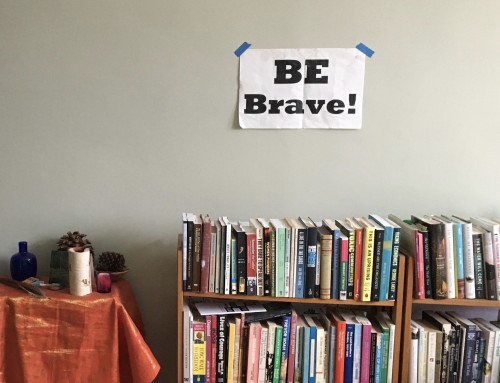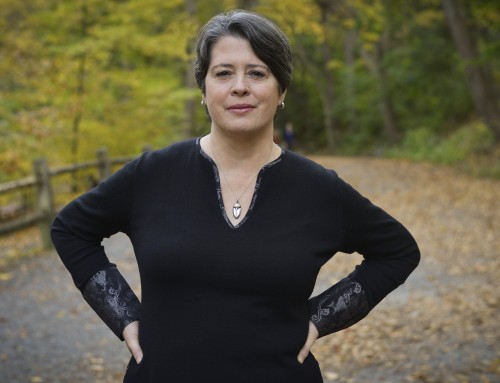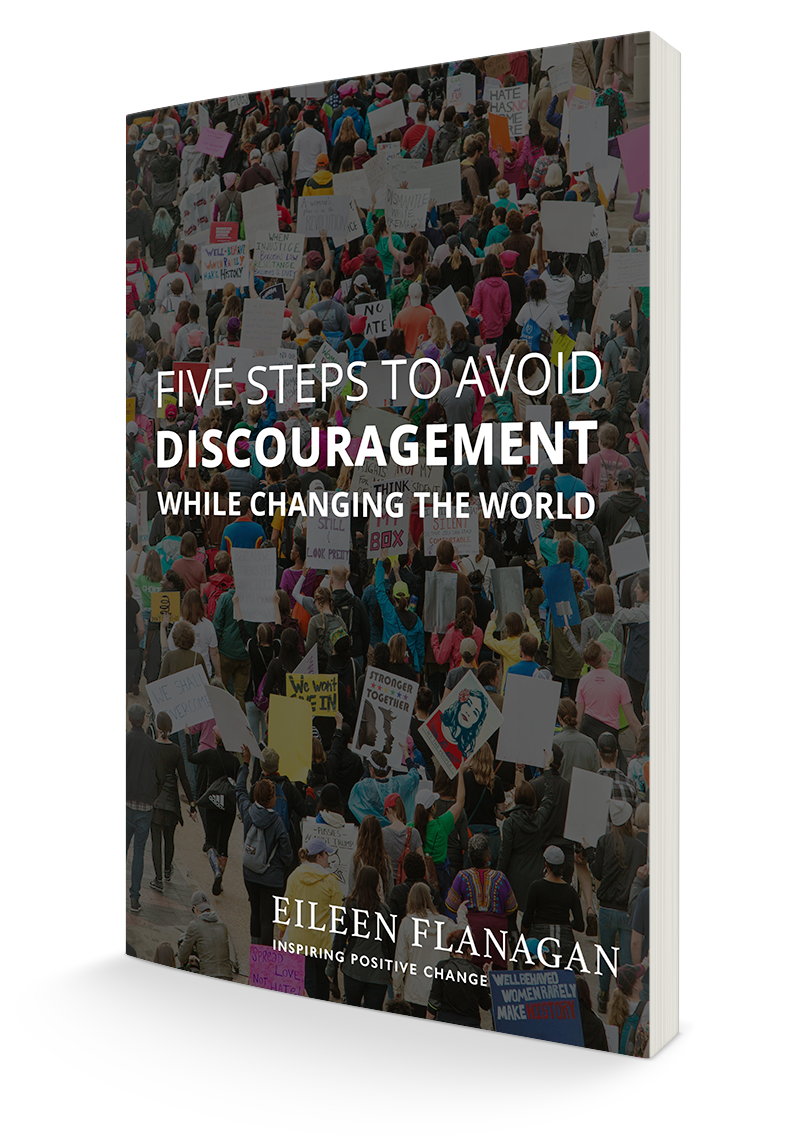After weeks of the quiet life, I gave two talks this week—not the readings from the book that I’ve gotten pretty confident about, but two different forty-five minute lectures in a row, which is longer than I usually speak without some type of audience participation. Monday night was to an amazing group of parents of children with addictions. Tuesday was to a Pendle Hill audience that included some intimidatingly well-known Quakers, new students at Pendle Hill, and people who were new to both, who came because they had heard about my book. I’m still sorting through what I’ve learned from these two experiences, but it centers around the question of inner preparation.
I had decided that the themes of fear and letting go were going to be part of both talks, so though the audiences were different, there were some things I wanted to say to both. I had been jotting down ideas for a few weeks and doing some relevant reading. (Thanks to Arthur Fink for his thoughtful post, which you may have missed since it was posted here as a reference, rather than as a comment.) My plan was to spend much of Monday preparing for the Monday night talk and much of Tuesday preparing for Pendle Hill. By Sunday, I felt a low buzz anxiety about the two of them in the back of my head. Then on Sunday night, my daughter got sick, throwing up about fourteen times in all and depriving both her parents of any REM sleep. Obviously, she would not be going to school, which meant I would not be getting the extended quiet I had been counting on. Instead, we watched Legally Blond.
Although being sick was obviously a bummer for my daughter, it did have one good result for me. I had to totally let go of my desire to plan a perfectly impressive talk for parents who had dealt with such turmoil and fear as I can only imagine. Instead, it put me back in the reality I had known as the parent of toddlers—that I cannot perfectly plan my life or control what my children will do next. This seemed like appropriate inner preparation. I started the talk by telling the story of my sick daughter and had to consult my notes a time or two, since I hadn’t been able to memorize what I wanted to say. The talk seemed well received, and I felt very humble listening to the parents share their own journeys with fear in the face of addiction. It was a powerful reminder of all that is not in our control, as well as a caution that I shouldn’t think I’ve got this parenting thing figured out just because we’ve managed to get as far as middle school.
The experience Monday made me feel more relaxed about Tuesday, as well. There were some different things I wanted to say to the Pendle Hill audience and a different frame around the talk, which is part of a series on transitions, but there was also some overlap. I spent some time preparing, but spent more time relaxing and clearing my head.
I had asked two Friends to serve as elders, but they were going to Pendle Hill early that day (and I had been unavailable Monday), so we didn’t talk ahead of time about what I was going to say. Instead we had dinner with other Pendle Hill folk, talked about Chestnut Hill Meeting’s upcoming mortgage discussion (just to put me in touch with some anxiety), and went to the lecture, where they sat on the facing bench with me and held me in the Light (which one of the people new to Quakerism asked about afterwards with great interest). I had told them ahead of time that I was looking for feedback, other than the “Oh, you were wonderful” kind of comments that friends tend to give people after a speech. Aside from the fact that accountability from elders is part of the Quaker tradition, I’ve also been thinking about a funny book on public speaking that said that you’ll never get better unless you hear critical feedback, which people generally won’t volunteer. So after the talk, which went smoothly, we sat down with warm drinks to discuss my speaking.
These Friends were gentle and indirect and talked more of possibility than explicit critique, but here’s what I came away with: I’ve got the smooth presentation skill of public speaking pretty well developed, but—at least for a Quaker audience—I could work on letting the speech go and opening to the Spirit in the moment, as well as being more vulnerable, which may involve telling more of my own stories and fewer of other people’s. I’m sitting with that challenge and wondering how to prepare for it. Perhaps I need less thinking and more prayer—less preparing in my head and more time with my elders in advance of presentations. That raises a whole host of questions about whom might best help me grow in these ways, but they feel like important questions to ask.




Thank you for this post… it shows me as a "newbie" to Quakerism how it is lived out with what I call my "public life". I *also* struggle with showing my vulnerable side. I am a health care provider and I rarely show my vulnerable side. On the very few occasions that I have, I have discovered that I am *honored* for sharing it. There is also a strength in sharing my vulnerability that I didn’t anticipate… that strength is in the connection I develop at the human level. We all have "The Human Condition" and vulnerability is where we share it, in my opinion.
*Love* your blog.
In the Light,
Sharon
Thanks, Sharon.